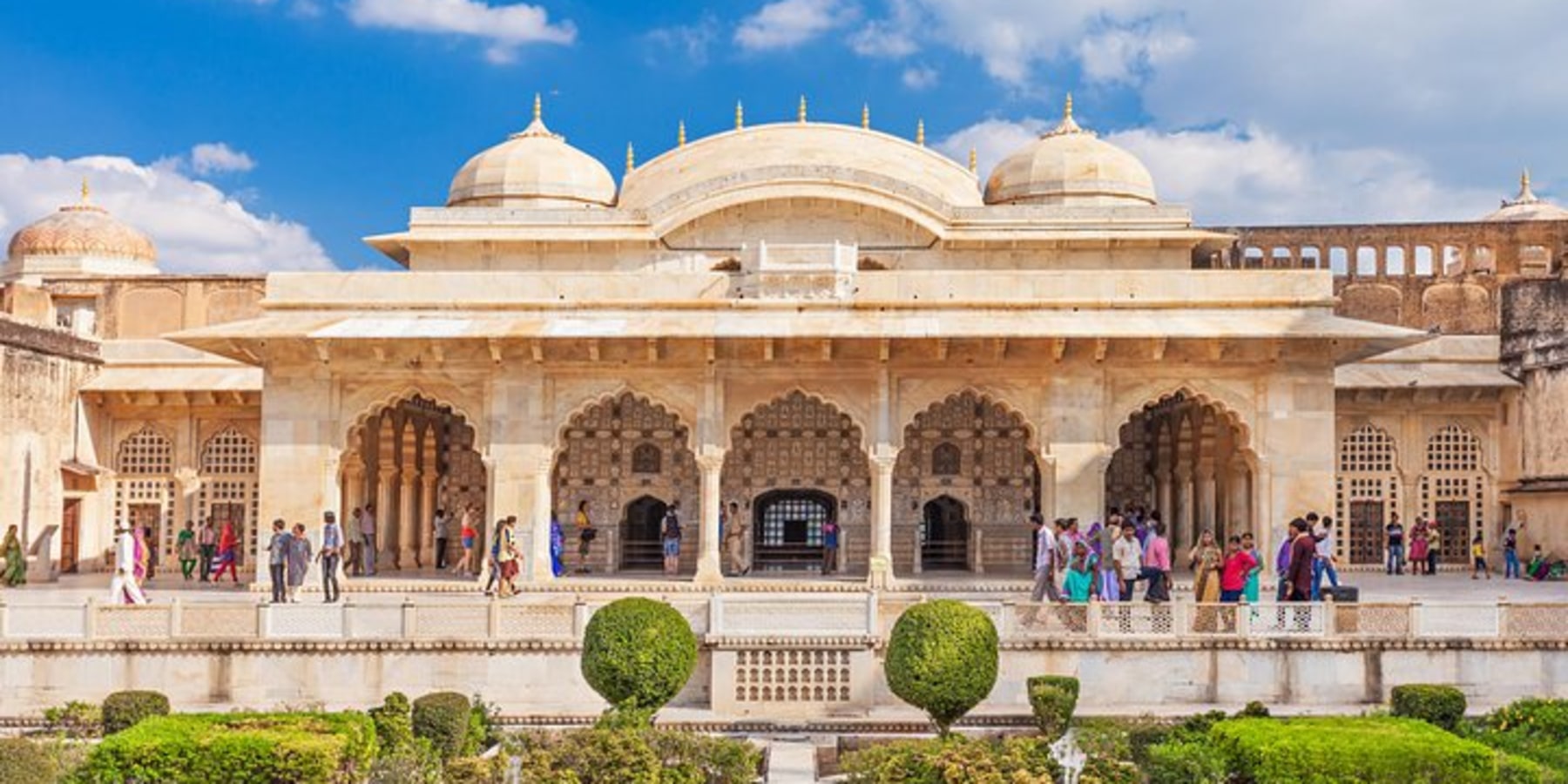
Introduction: Jaipur, known as the Pink City, is the capital of the Indian state of Rajasthan, famed for its vibrant culture, magnificent palaces, and pink-hued architecture.
Architectural Marvels: The city is adorned with stunning architectural marvels, including the Hawa Mahal, a palace with intricately carved windows, and the City Palace, a sprawling complex showcasing Rajput and Mughal architectural styles.
Pink Hue: Jaipur earned its moniker "Pink City" due to the terracotta-pink color of its buildings, which were painted pink to welcome the Prince of Wales in 1876, symbolizing hospitality and tradition.
Historical Heritage: Founded in 1727 by Maharaja Sawai Jai Singh II, Jaipur is steeped in history, with its streets, markets, and monuments reflecting the grandeur and opulence of Rajasthan's royal legacy.
Bazaars and Markets: The bustling bazaars of Jaipur, such as Johari Bazaar and Bapu Bazaar, offer a treasure trove of traditional handicrafts, textiles, jewelry, and souvenirs, making it a shopper's paradise.
Cultural Extravaganza: Jaipur hosts vibrant cultural festivals and events throughout the year, including the Jaipur Literature Festival and the Teej Festival, showcasing the region's rich cultural heritage and artistic traditions.
Royal Residences: The city is dotted with magnificent palaces and forts, including the Amber Fort, Nahargarh Fort, and Jaigarh Fort, each offering a glimpse into the royal lifestyle and military prowess of the Rajput rulers.
City Planning: Jaipur is renowned for its well-planned layout, with wide streets, geometrically precise architecture, and a grid-like structure, designed according to the principles of Vastu Shastra and ancient Hindu architecture.
Tourist Attractions: Besides its architectural splendors, Jaipur is home to other attractions like the Jantar Mantar, an astronomical observatory UNESCO World Heritage Site, and the Albert Hall Museum, showcasing artifacts and artworks.
Cuisine: Jaipur's culinary scene is a gastronomic delight, with traditional Rajasthani cuisine featuring delicacies like dal baati churma, laal maas, and ghewar, along with a blend of Mughlai and international flavors.
Heritage Hotels: Many of Jaipur's palaces and havelis have been converted into heritage hotels, offering visitors the chance to experience regal hospitality and luxury amidst a backdrop of history and grandeur.
Modern Development: While preserving its rich heritage, Jaipur has embraced modernity with developments in infrastructure, technology, and tourism, making it a dynamic and thriving city in India's cultural landscape.
Conclusion: Jaipur, with its architectural splendors, cultural richness, and royal legacy, continues to enchant visitors with its timeless charm and regal allure, making it a must-visit destination for travelers seeking an immersive experience in the grandeur of Rajasthan.

